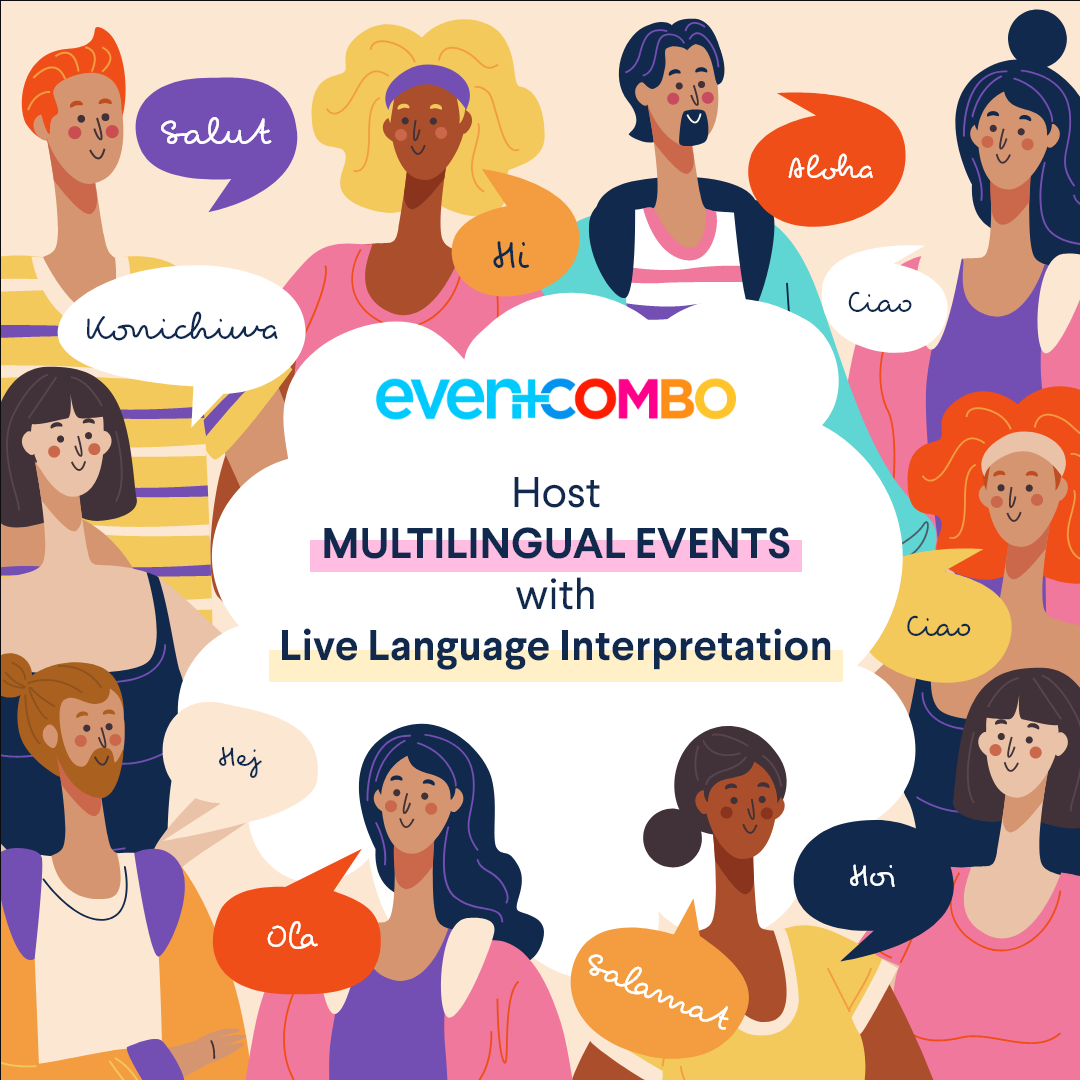

Online events offer incredible opportunities. Virtual and hybrid events have enabled us to reach a wider set of audiences by eliminating geographical constraints and cutting travel expenses. The major focus of event planners now remains inviting impactful speakers and engaging audiences participating from all over the world. However, one of the biggest barriers encountered amid all this is communication and possible language barriers.
To resolve this, multilingual events with live language interpretation are rapidly gaining popularity. This is an imperative, especially when an event welcomes a larger set of attendees from different parts of the globe.
An event organizer’s main agenda is to make sure that the overall experience is smooth and accessible to everyone who is participating. When an event welcomes a global audience, people from assorted backgrounds, speaking different languages, come together under one roof. For such events, tools like live language interpretation greatly helps in overcoming communication barriers.
What is language interpretation?
One of the most popular event tech trends today is ‘Language Interpretation’, also known as ‘simultaneous interpretation’. It is an important technology for connecting people, who speak different languages, in real-time. This can be done by using specialized tools, software, and professional interpreters.
What is simultaneous interpretation?
Simultaneous interpretation, also called simultaneous translation, is a process in which an interpreter converts or translates the event communication into the native language chosen by the attendee quickly in real-time. The entire process of delivering the speech and translating it happens simultaneously - as the speaker delivers their speech, the interpreter converts it into the intended language.
It is a quick process and requires some expertise as not every interpreter can deliver translations so promptly.
Technically, this is how it works:
The next question – why aren’t we utilizing AI and computers for this?
Artificial intelligence combined with language translation is known as machine translation. In this, a computer takes input of written language and translates it into an intended second language by using programs and algorithms.
The issue with machine translation remains in the inability of the computer to identify whether the interpretation is making sense or not. Also, the computer cannot understand slang, humour, sarcasm, or even the emotional aspects of a language and often fails to interpret them in the same context. Since data processing and management follow certain rules to produce result, it majorly misses out on the beauty of the language. Another drawback of AI is that it cannot interpret voice modulation, sign language, and gestures, which are a critical part of any communication.
Benefits of hosting multilingual events
Let us now take a look at some of the benefits of hosting multilingual events with live language interpretation.
Overall, multilingual events and live language interpretation have filled the event space with newer opportunities, making events more accessible and inclusive. Language interpretation can help an event reach its maximum potential, regardless of the event size and format.

The metrics look strong. Registrations are up. Attendance holds. Satisfaction scores clear the benchmark. Then comes the CFO question that freezes the room. Which registrations turned into customers? Sales checks the...

Professional certifications for event planners do more than provide a solid foundation in the field; they offer valuable exposure to the dynamic world of event planning and insights from prominent industry experts.

Choosing the right event management platform is vital for event professionals navigating the growing demand for in person , virtual, and hybrid events. Modern planners need solutions that offer robust features,...